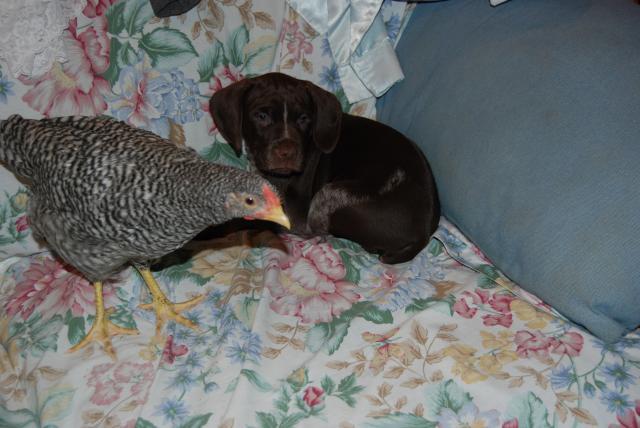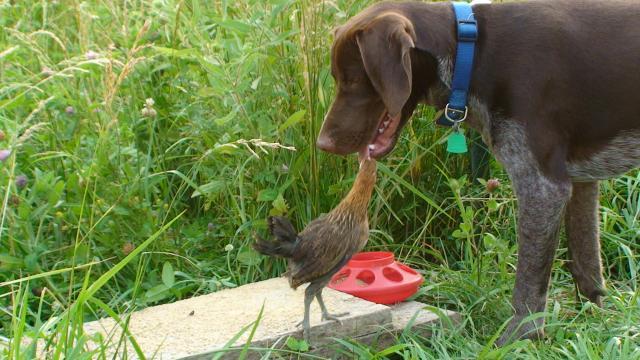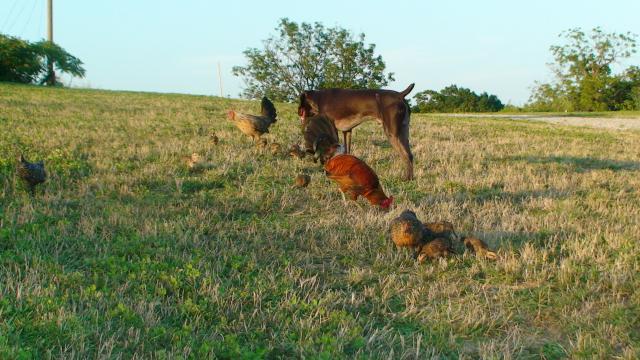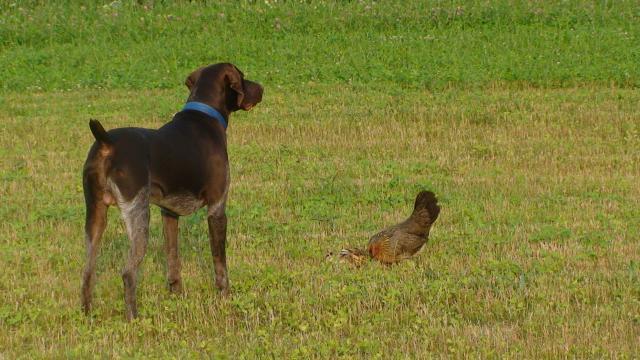- Jun 4, 2011
- 3,595
- 583
- 296
Honestly, I never trust any animal 100%. They are animals and the safety of all it's my responsibility. I have seen dogs that were good withchickens for years just one day device to c chase. They weren't wanting to hurt the birds, just running and racing about. The bird fluttered across their path and the dog took it as an invitation toplay. Yup, dead bird 20 seconds later. ROMP ROMP SQUISH.
Dogs and chickens are living brings and s such will eventually do something you never thought they would do
Dogs and chickens are living brings and s such will eventually do something you never thought they would do










 Today my dad was out with tucker, just reading on the porch. Whenever the chickens went into the garage, Tucker chased them out. He stopped as soon as they got out. Also, he was off the leash and the chickens were free ranging, and he chased one of them. But he definately WAS NOT going for the kill. He can run fast when he wants too, and he was just leisurely running. And i could get his attention away from them. should i take that as a good sign?
Today my dad was out with tucker, just reading on the porch. Whenever the chickens went into the garage, Tucker chased them out. He stopped as soon as they got out. Also, he was off the leash and the chickens were free ranging, and he chased one of them. But he definately WAS NOT going for the kill. He can run fast when he wants too, and he was just leisurely running. And i could get his attention away from them. should i take that as a good sign?
